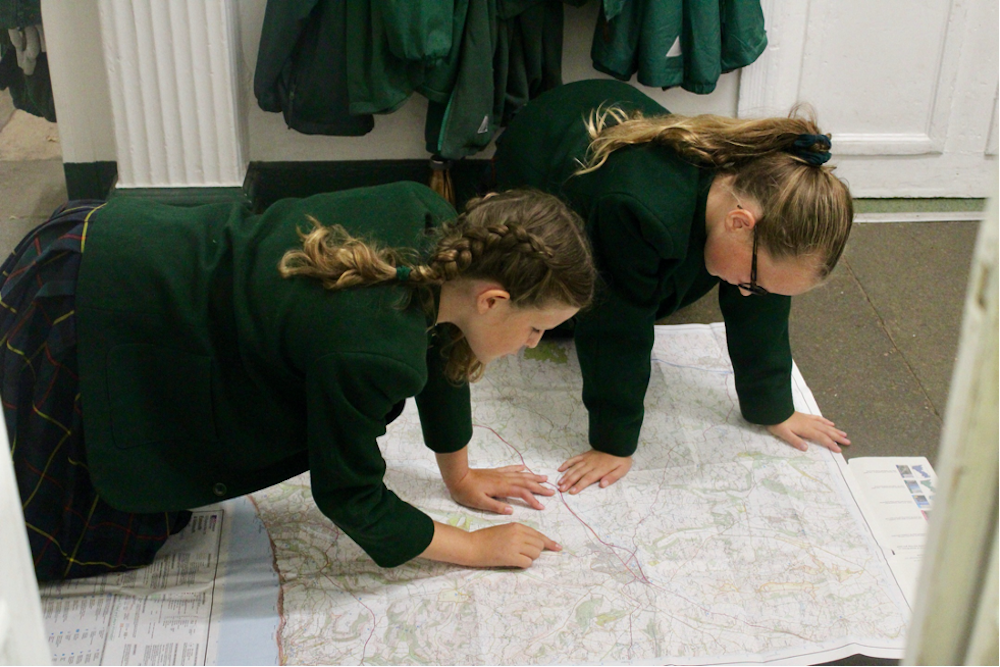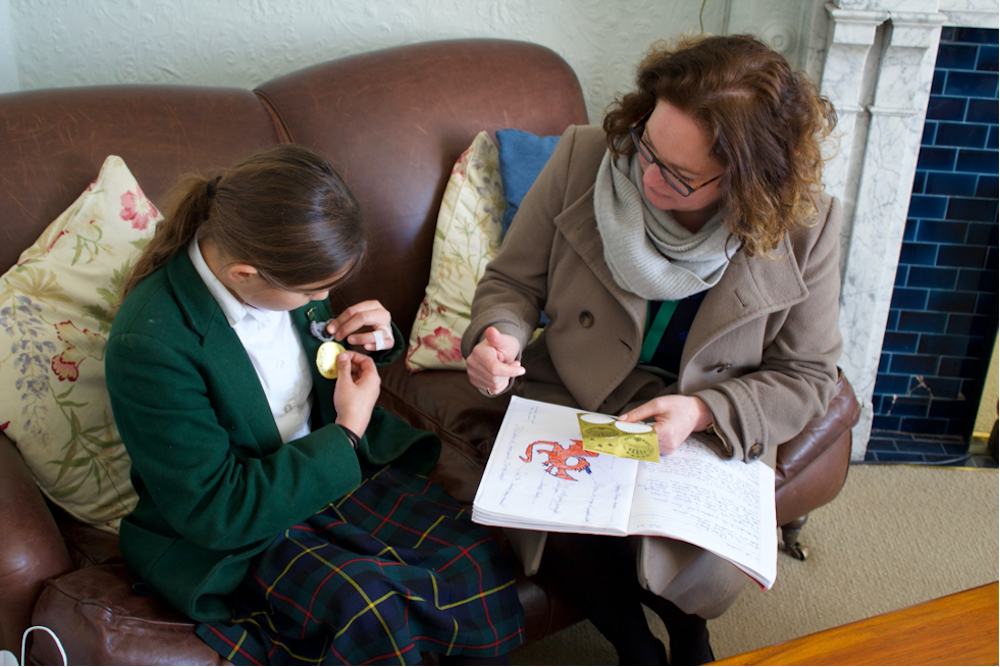Self-esteem begins in childhood, and it is vital to a child’s overall development. Here at St Peter’s Prep, we are an independent primary school that promotes self-confidence and offers all the necessary support to ensure your child feels encouraged to strive for success.
What is Self-esteem?
Self-esteem is the perception we have about ourselves. It is created from our own beliefs and opinions on how we value ourselves. High self-esteem is essential because any negative thoughts we harbour are hard to adjust in the future.
The development of our self-esteem starts from when we are babies and develops as we build our independence and accumulate praise. Life experiences and social interactions also shape our self-esteem.
The Impact of Low Self-esteem
It is likely that, if you have low self-esteem, you will avoid socialising, challenging yourself and trying new things.
Instead of over-challenging yourself, avoidance is used as a coping mechanism for the unknown and unfamiliar. The short-term consequence of avoiding these things is to feel temporarily safe.
However, these aren’t things you can avoid forever, and they can also harm your mental health through feeling isolated and lonely.
How Parents Can Help Encourage Self-esteem
As a parent or carer, there are a few important things you can do to support your children and enhance their self-esteem.
Each child is different and how their self-esteem develops will depend entirely on them individually and the various challenges they experience in life.
Below, we offer a general guide on how to communicate with your child and ensure they are appropriately praised and encouraged to challenge themselves throughout their childhood!
1. Focus on Effort
At any point where a child has shown effort, it should be positively acknowledged.
Instead of focusing on the outcome, focus on the journey and the work that was put into it. Whatever happens, it is time well spent, and this value of effort needs to be appreciated.
Building self-esteem comes from avoiding a sense of shame or embarrassment when a child is trying to achieve something. The feeling of humiliation can lead to feeling self-conscious. This could hinder your child trying out new experiences which can contribute to their self-esteem.
2. Set Goals
A great way to help build self-esteem is to break any journey down into small and manageable steps.
By doing this, it helps a child strive for attainable goals which they will feel more prepared and encouraged to attempt, as opposed to feeling overwhelmed and intimidated by the bigger picture.
By sitting down and setting goals together, it provides support as you map out the plan of action together.

3. Track Progress
Creating a plan of small and attainable goals is also an excellent way to keep a record of the progress made by your child.
You may want to make a visual chart or write it down in a notebook to refer back to.
It is especially useful as it reflects their journey and their accomplishments. It acts as evidence of their achievements and is a reference that they can do it again. Each time something is achieved, it will help raise their esteem.
It also teaches them that their time and effort are valuable to the journey, and the feeling of pride doesn’t just come from the final achievement at the end.
4. Encourage New Challenges & Experiences
As the carer or parent of a child, it is up to you to set the example of trying new things.
A child who has high self-esteem may automatically want to attempt new activities. However, those who aren’t on that level yet will need extra guidance and reassurance.
The push to try new things will come from those who they look up to. Encouraging them to attempt new things increases their perception that the unfamiliar is okay, and they can take part.
It is also essential to promote children’s curiosity by answering their questions.

5. Reassure Your Child
Mistakes are part of the learning process, and this needs to be explained to children who may be scared of making them. An error isn’t anything to be ashamed of, and it can, in fact, be incredibly useful and informative when we are learning something new.
Opinions
It is also essential to explain to children that they may not always share the same opinions as other people, and this is okay. Teaching them to respect other people’s views as well as their own will help them to be more assertive when they communicate.
We all have different views on the world, and the ability to listen and learn from others is a crucial life skill. Being able to state your opinion can help with feelings of confidence.

6. Praise Correctly
Praise is a vital part of developing a child’s self-esteem. However, using credit effectively may not be as simple as we may first presume.
Firstly, it is essential to know that praise shouldn’t be offered on a win-or-lose basis.
Be Truthful
In life, there will be setbacks on the road to achieving our goals. It is a harsh reality that we all have to learn about one way or another. The more honest we are about it, the more likely we are to tackle challenges in a productive way.
Remaining straightforward about something that feels like a failure is much more beneficial than bigging something up that doesn’t feel true to the situation. For example, overpraising because your child didn’t achieve what they wanted to can feel fake and dishonest.
Instead, acknowledge how the situation unfolded, offer reassurance. We can’t always achieve what we want the first time around, and that’s okay. This is a much more authentic response that nurtures their attempt, encouraging them to try again.
Regardless of the outcome, it’s advisable to explain why you’re proud of them, as this offers an added boost of confidence. It will help to inspire them and their preparation for their future attempts.
Furthermore, overpraising can take away from the praise given in an earned situation.
7. Don’t Only Praise Results
Of course, if a child achieves a good result, they deserve praise for their accomplishment.
However, you shouldn’t save all your praise for the final result.
In fact, praise should be given throughout the journey, and should be offered when a child shows:
- A positive attitude.
- The effort applied.
- The progress they make throughout their journey.
Reflection
Learning how to reflect on the day is a good habit to have too, so try and ask them about three things they felt went well at the end of each day. By doing this, it helps them to review each day and allows them to recognise why they have progressed and what is needed to help them. It also promotes a sense of gratitude.
8. Let Children Make Their Own Decisions
Letting children make their own choices will encourage them to think for themselves and understand the consequences of decisions. Even small, everyday decisions such as whether to wear a coat or not will allow them to take control of their actions and learn from any mistakes they may make.
Whilst it’s only natural to want to make decisions to keep your child safe, you face the risk of over-protection, teaching them to be dependent on you as a caregiver. Similarly, by taking away the independence that some of their peers might be experiencing, children may begin to believe they are incapable and can’t be trusted.

9. Foster a Growth Mindset
Reframe any negative thoughts and statements so that children maintain the belief that they can improve in the future. Fixed mindsets refer to children who believe their skillsets are bad, either because of what they are told or on self-reflection and that they should give up that activity as they are unlikely to improve.
For example, if your child says, “I can’t run as fast as the others” in reference to teammates on the football team, reply with something like “Well at least now we know what we need to practise!” and ensure you spend some extra time working on running throughout the week. Fixed mindsets can be detrimental to a child’s development across the board and are likely to encourage a defeatist attitude to tasks in later life and should be avoided at all costs.
10. Assign Age-Appropriate Household Chores
Giving children a bit more responsibility in the family home will instil a sense of trust in them which will do wonders for their self-esteem. For younger children, simply helping to dry the dishes or clearing the table will help them gain a feel for the importance of everyday tasks, whereas older children can take the dog for a walk or do the washing.
Again, you can let them figure out the consequences for themselves. For example, if they don’t do the washing, they might not have clean clothes for the following day but make sure you explain the importance of each task thoroughly and what might happen if they are not completed.
These are just a few practical ways to ensure your child develops healthy self-esteem. Here at St Peter’s Prep, we provide a traditional and progressive educational experience where the mental health of our pupils is at the heart of our school.
To discover more about our educational opportunities at St Peter’s Prep, please get in touch.








